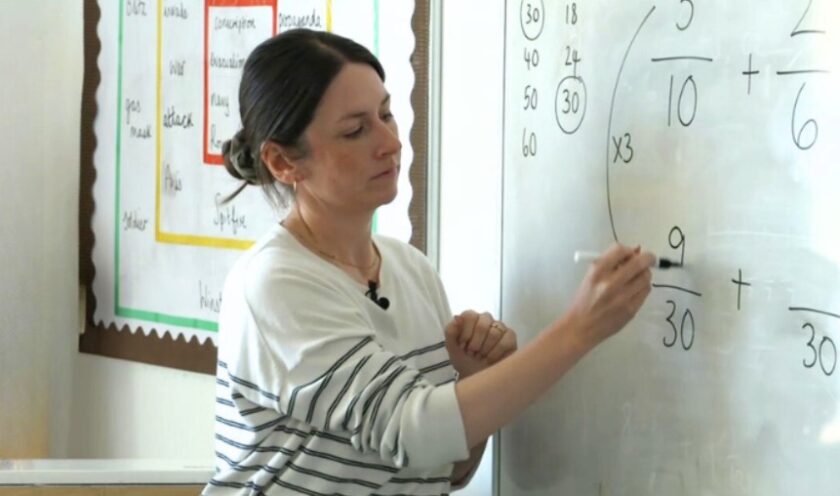Estyn report raises alarm over maths standards in Wales

The quality of mathematics education across Wales remains too variable, with many pupils underperforming due to inconsistent teaching and insufficient subject-specific support, according to a new thematic report from Estyn.
The report, ‘Unlocking potential: Insights into improving teaching and leadership in mathematics education’, draws on school inspections, thematic visits to 30 schools during autumn 2024, and national survey responses.
Inspectors observed lessons, spoke with staff and pupils, and reviewed documentation from a mix of primary, secondary, and all-age schools.
They found that while pockets of strong practice exist, too many schools fall short in key areas including subject knowledge, pedagogy, curriculum design and the effective use of assessment.
Where teaching was most effective, teachers set high expectations, used responsive assessment techniques, and helped pupils build a deep understanding of mathematical concepts.
In contrast, weaker teaching often lacked challenge, relied on generic schemes of work, and failed to address common misconceptions.
The report also highlights a decline in professional learning opportunities specific to mathematics, contributing to low teacher confidence and uncertainty over the Curriculum for Wales.
Some teachers reportedly used off-the-shelf materials without adapting them to meet the needs of their pupils.
Chief Inspector Owen Evans said: “Too many pupils in Wales are not reaching their full potential in mathematics because the quality of teaching and leadership varies so widely between schools. We need to raise expectations for all learners and provide our teachers with the subject-specific training and support they need to help every pupil succeed. Strong mathematics education is fundamental not just to individual futures, but to Wales’s future prosperity.
“Our report focusses on how we can improve the teaching of Maths in Wales, and provides a number of best practice examples and resources to support teachers in their day to day practice.”
Estyn’s findings show that effective maths teaching often features a carefully designed curriculum with a clear progression model, a balance between direct instruction and exploratory learning, and real-world applications of mathematical skills.
Collaborative planning and shared understanding of learning outcomes were also common traits in the strongest schools.
Welsh Conservative Shadow Cabinet Secretary for Education, Natasha Asghar MS, responded to the report by criticising the Welsh Government’s record:
“This report lays bare the systemic failings of the Welsh Labour Government. After 26 years in charge, Labour continues to let students down by poor teaching standards and a lack of support for teachers. These are not just statistics; they represent real opportunities lost for our young people.
“Maths is the backbone of our future economy, from AI to engineering, and we cannot afford to undermine it. Yet Labour’s weak guidance, chronic underfunding, and lack of support for teachers are failing our schools and jeopardising the future prospects of our children.”
Estyn has made a series of recommendations to the Welsh Government, local authorities, and school leaders, including the need for clearer expectations, stronger support structures, and improved access to high-quality training tailored to mathematics teaching.
Spotted something? Got a story? Send a Facebook Message | A direct message on Twitter | Email: [email protected] Latest News









